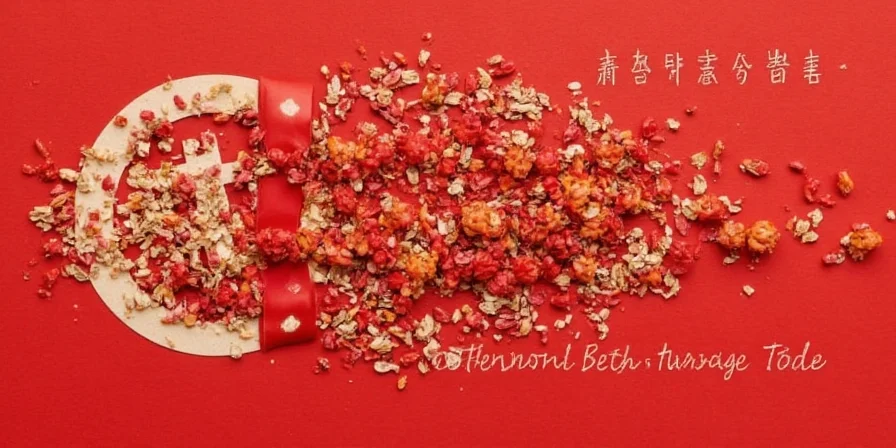Discover exactly which herbs work with chicken, fish, and vegetables—and when to add them for perfect flavor. This practical guide reveals the 10 essential herbs every home cook needs, with clear pairing suggestions and timing tips you can use immediately. Skip the confusing science: we've tested these combinations in real kitchens to deliver foolproof results.
Top 10 Essential Herbs Cheat Sheet
Use this quick reference for common cooking scenarios. Save this page for your next grocery run!
| Herb | Best For | When to Add | Pro Tip |
|---|---|---|---|
| Basil | Pasta, tomatoes, salads | Raw or last minute | Stir into pesto with garlic and pine nuts |
| Thyme | Chicken, soups, roasted veggies | Early in cooking | Add whole sprigs to soups, remove before serving |
| Rosemary | Lamb, potatoes, bread | Early for roasting | Pair with garlic for roasted potatoes |
| Oregano | Pizza, Italian dishes | Early in cooking | Dried works better than fresh for sauces |
| Parsley | Garnish, fish, salads | At the end | Flat-leaf has better flavor than curly |
| Dill | Fish, potatoes, dips | Last 2 minutes | Perfect for salmon and cucumber salads |
| Mint | Desserts, lamb, drinks | Raw only | Chop finely for tabbouleh or mojitos |
| Cilantro | Mexican, Asian, salsas | At the end | Add lime juice to balance soapy taste |
| Sage | Pork, butter sauces | Fry briefly in butter | Crisp leaves for pasta or squash |
| Chives | Eggs, potatoes, dips | Raw at end | Snip with scissors for even pieces |

When to Use Fresh vs. Dried Herbs (Simple Guide)
Get this wrong and your dishes will suffer. Here's exactly what to do:
- Always use fresh: Basil, cilantro, dill, mint, chives (drying destroys their flavor)
- Always use dried: Oregano, thyme, rosemary (drying concentrates their flavor)
- Depends on dish: Parsley (fresh for garnish, dried for soups)
Perfect Herb Pairings for Common Proteins
Stop guessing which herbs work with your main ingredients:
- Chicken: Thyme + rosemary (roasted), tarragon + parsley (pan sauces)
- Fish: Dill (salmon), parsley + lemon (white fish), cilantro (tacos)
- Beef: Rosemary (steak), oregano (burgers), thyme (stews)
- Pork: Sage (chops), rosemary (tenderloin), fennel (sausages)
- Eggs: Chives (scrambled), dill (frittatas), parsley (omelets)

3 Common Herb Mistakes (And How to Fix Them)
Avoid these errors that ruin otherwise good dishes:
- Adding delicate herbs too early: Basil, cilantro, and dill lose flavor when cooked too long. Add in last 2 minutes.
- Using dried substitutes incorrectly: Use ⅓ the amount of dried herbs when substituting for fresh (they're more concentrated).
- Storing herbs wrong: Tender herbs (basil, cilantro) last longer in water like flowers; woody herbs (rosemary, thyme) in damp paper towels.
Grow Your Own: Simple Herb Garden Tips
Get better flavor and save money with these easy growing tips:
- Basil: Pinch off flowers to keep leaves growing
- Mint: Plant in containers (it spreads aggressively)
- Rosemary: Needs full sun and well-draining soil
- Cilantro: Plant new seeds every 2 weeks for continuous supply
- Thyme: Trim regularly to encourage bushy growth

Why Some People Hate Cilantro (And What to Do)
About 1 in 5 people think cilantro tastes like soap due to genetics. If you're one of them:
- Add extra lime juice (the acid suppresses the soapy taste)
- Use cooked cilantro (heating changes the compounds)
- Try culantro (a different herb with similar flavor but no soap issue)

Save Time: Herb Storage Guide
Make your herbs last 2-3x longer with these storage methods:
- Tender herbs (basil, cilantro, parsley): Trim stems, place in water, cover loosely with plastic bag
- Woody herbs (rosemary, thyme, oregano): Wrap in damp paper towel, store in container
- Freezing: Chop herbs, mix with oil, freeze in ice cube trays

Frequently Asked Questions
What are the 3 most versatile cooking herbs?
Thyme, parsley, and rosemary work with most dishes. Thyme for soups and roasts, parsley as a neutral garnish, and rosemary for hearty meats and potatoes.
Which herbs go best with chicken?
For roasted chicken: thyme + rosemary + garlic. For pan sauces: tarragon + parsley. For grilled chicken: oregano + lemon thyme. Add woody herbs early in cooking, delicate herbs at the end.
How do I know when herbs have gone bad?
Signs include yellowing, slimy texture, or loss of fragrance. Most fresh herbs last 1-2 weeks when stored properly. Woody herbs last longer than tender ones. When in doubt, smell it - if the aroma is weak, it won't add much flavor to your dish.
Can I substitute dried herbs for fresh?
Yes, but use 1/3 the amount of dried herbs when substituting for fresh (dried herbs are more concentrated). Dried oregano, thyme and rosemary work well, but avoid dried basil, cilantro and dill as they lose most flavor.
Quick Reference: Herb Pairing Chart
Print this for your kitchen:
| Food | Best Herbs | How to Use |
|---|---|---|
| Tomatoes | Basil, oregano | Add basil raw, oregano early in cooking |
| Potatoes | Rosemary, thyme | Toss with oil and herbs before roasting |
| Fish | Dill, parsley | Add dill with lemon juice at end |
| Salads | Chives, mint | Chop finely and mix into dressing |
| Eggs | Chives, dill | Stir in just before serving |

Putting It All Together
Start with these simple combinations to build confidence:
- Beginner pasta: Toss cooked pasta with fresh basil, garlic, olive oil, and Parmesan
- Easy roasted chicken: Rub chicken with rosemary, thyme, salt, and olive oil before roasting
- Quick salad dressing: Whisk olive oil, lemon juice, chopped chives, salt and pepper
Master these basics first, then experiment with more complex combinations. The key is proper timing—add delicate herbs at the end and woody herbs early. Keep this guide handy for your next cooking session, and you'll never wonder "which herbs go with what" again.











 浙公网安备
33010002000092号
浙公网安备
33010002000092号 浙B2-20120091-4
浙B2-20120091-4